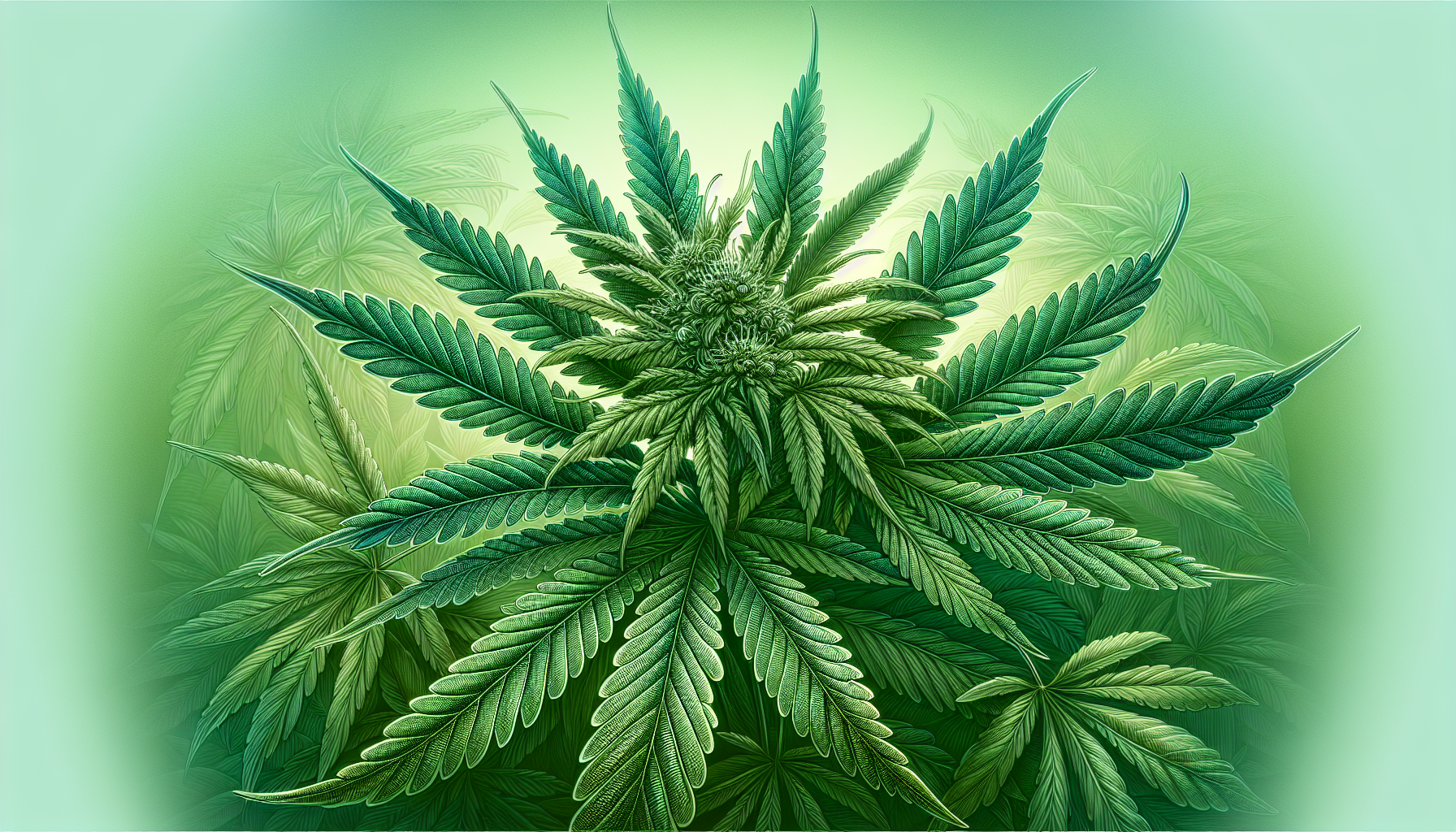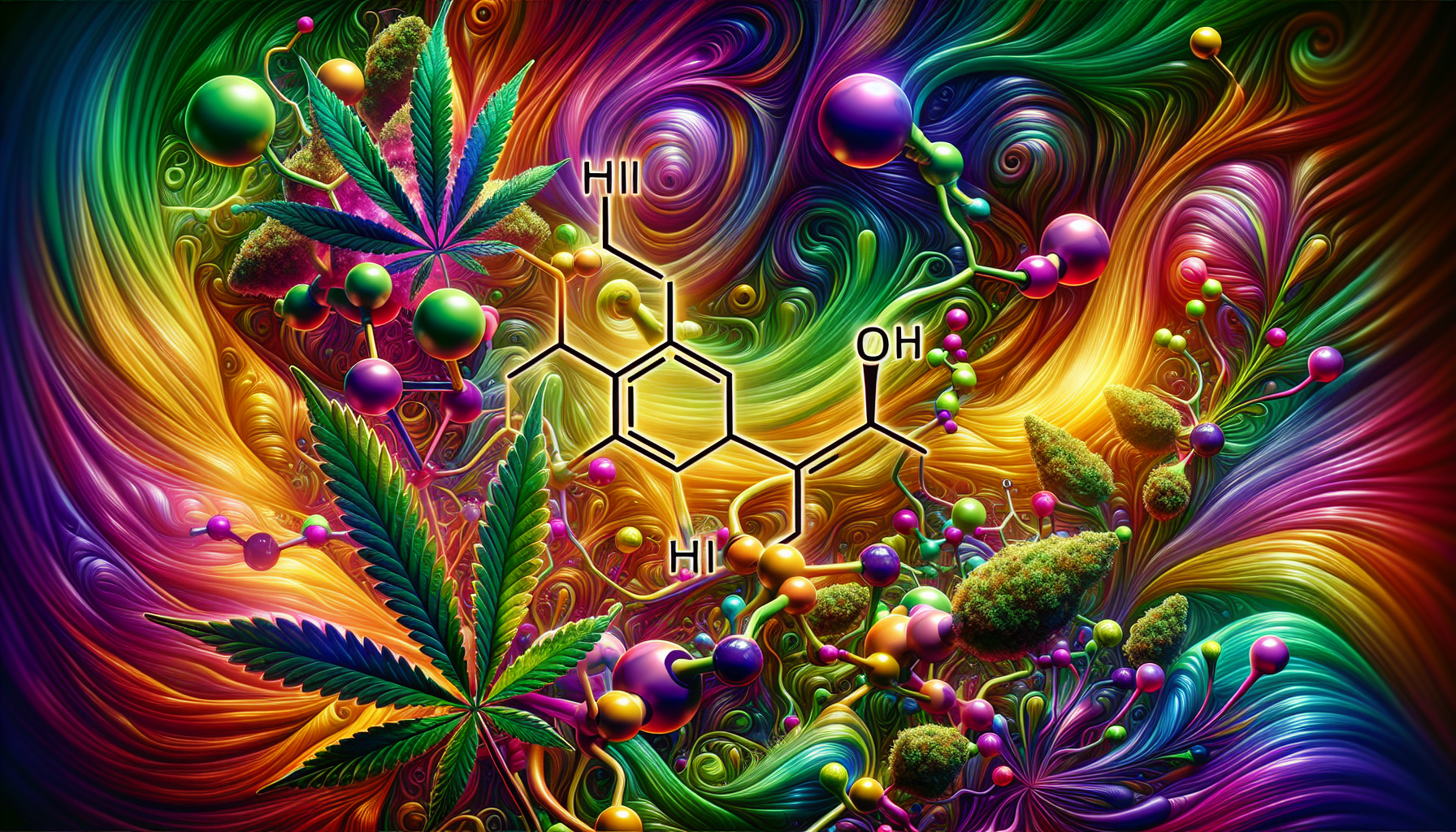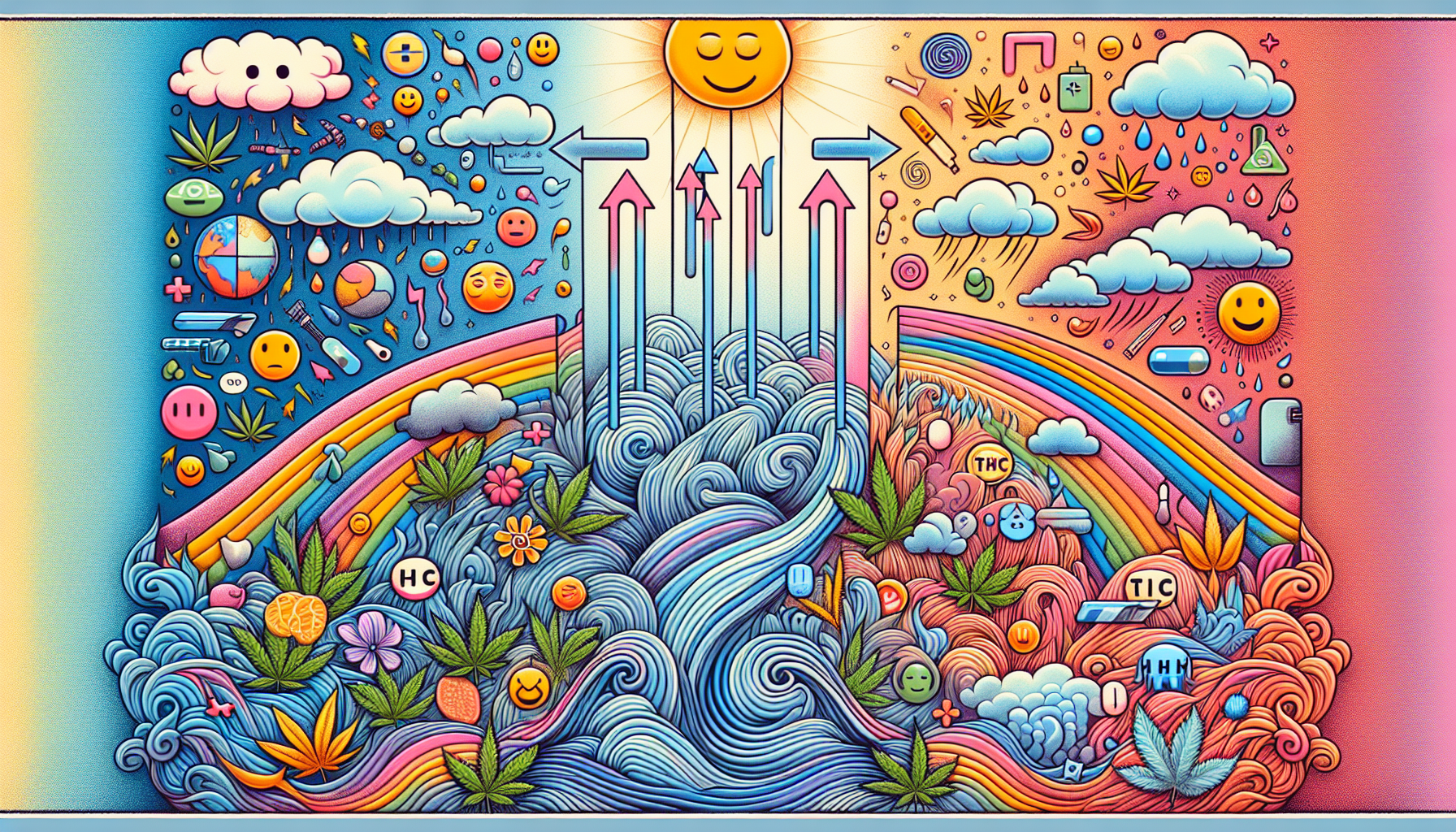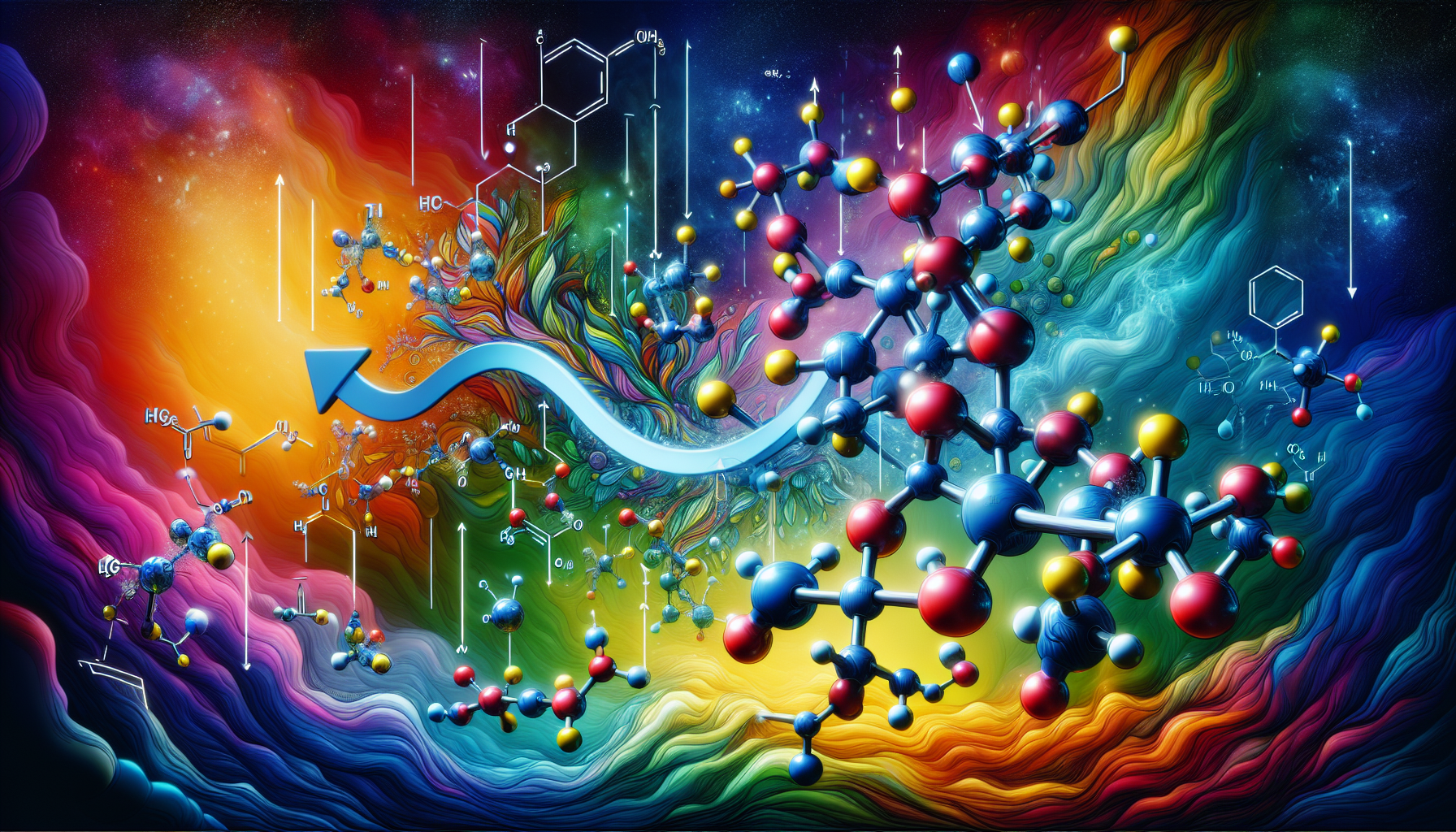HHC vs THC: Differences and Effects in Comparison
HHC vs THC: Differences and Effects in Comparison
HHC vs THC: What makes them different? Many people wonder how HHC and THC differ and what effects they have. This article gives you an overview of the key differences and describes what you can expect from both cannabinoids.
The most important things at a glance
-
HHC (hexahydrocannabinol) is a semi-synthetic cannabinoid with lesser psychoactive effects compared to THC (tetrahydrocannabinol), which is known for its intense 'high'.
-
While THC is widely used in medicine and is used to treat pain and nausea, the therapeutic properties of HHC have not yet been sufficiently researched.
-
The legal situation of HHC is uncertain and could soon change in Germany, while THC is subject to different legal regulations worldwide.
What is HHC?

HHC, or hexahydrocannabinol, is a semi-synthetic cannabinoid that offers potential health benefits and has a less potent psychoactive effect compared to its more popular cousin THC. The chemical structure of HHC differs in that it has additional hydrogen atoms and fewer double bonds, resulting in similar but modified properties.
Compared to THC, which is abundant in nature, HHC is found in very small amounts in nature. Both compounds belong to the group of hydrocarbons and share many chemical characteristics, but the differences in their structure lead to different effects on the human body.
What is THC?

THC stands for tetrahydrocannabinol. It is the main component in the cannabis plant that has psychoactive effects. It is the cannabinoid primarily responsible for the "high" associated with the use of cannabis and marijuana. THC is the most studied cannabinoid and is found primarily in THC-rich cannabis flowers.
One of the most notable properties of THC is its rapid effects, especially when inhaled. This rapid effect makes it a popular active ingredient in numerous cannabis products. THC is known for its intense psychoactive effects that can induce euphoria and altered perception. At the same time, it is also used medicinally to relieve pain, reduce nausea, and increase appetite.
Compared to other cannabinoids such as CBD, which has no psychoactive effects, THC offers a unique combination of therapeutic and psychoactive properties. This versatility makes it a valuable ingredient in many cannabis products used to treat a variety of health problems.
Comparison of effects: HHC vs. THC

HHC and THC may have chemical similarities, but their effects on the human body are very different. The fundamental difference between the two lies in their molecular structure, which results in different pharmacological profiles.
While THC is known for its intense psychoactive effects and wide therapeutic applications, HHC is still in the early stages of medical exploration. The effects and potential dangers of both substances are key issues to compare, especially in the context of thc vs HHC. THC already has proven therapeutic benefits such as pain relief and the treatment of nausea.
Psychoactive effects
Both HHC and THC are psychoactive compounds that have different effects on the mind and body. The psychoactive effects of HHC are generally less pronounced than those of THC, resulting in milder and more relaxing sensations.
THC, on the other hand, produces intense effects such as euphoria and altered perception that act quickly on the conscious mind. These powerful psychoactive effects make THC a popular substance among recreational users looking for an intense “high.”
The reason for the different intensities of the effects lies in the affinity of the two compounds to the CB1 receptors in the brain. HHC has a moderate affinity for these receptors, resulting in its lower psychoactive effects compared to THC. Overall, these differences lead to different experiences for users of HHC and THC.
Medical Applications
THC is known for its ability to reduce nausea and produce relaxing effects. These properties make it a valuable agent for treating chronic pain and muscle spasms.
Current studies are investigating HHC for its ability to relieve pain and treat anxiety. There is evidence that HHC may have similar therapeutic properties to THC, but without the same powerful psychoactive effects.
Although research on HHC is still in its infancy, initial results show promising approaches to treating pain and inflammation. However, much of the knowledge gained so far comes from personal experiences of users, which underscores the need for further scientific studies.
side effects
THC can cause several side effects. These include:
-
dry mouth
-
red eyes
-
dizziness
-
paranoia
-
increased anxiety
Long-term risks of THC use can include dependence and memory loss. The most common side effects of THC also include mental health problems and reduced productivity. These side effects make it necessary for THC-containing medications to be used under medical supervision to minimize potential dangers.
HHC appears to cause fewer side effects such as paranoia or anxiety compared to THC. However, HHC can also cause side effects such as dry mouth, dizziness or altered perception.
Although HHC may have a lower risk of psychological side effects than THC, the risks and side effects of HHC are less well researched. Consumers should be aware of the potential side effects and safety concerns associated with consuming cannabinoids.
endocannabinoid system and receptors
The endocannabinoid system plays a central role in regulating many physiological processes in the body, including pain sensation, mood, and appetite. HHC and THC influence these processes through their interaction with the CB1 and CB2 receptors in the brain and other parts of the body.
Anandamide and 2-arachidonoylglycerol are endogenous cannabinoids that act on the CB1 and CB2 receptors and regulate important body processes. Understanding this system helps to better understand the mechanisms of action of HHC and THC.
CB1 receptors
THC binds strongly to the CB1 receptors in the brain, resulting in the well-known psychoactive effects such as euphoria and relaxation. This strong affinity explains the intense effects of THC.
HHC also binds to CB1 receptors, but with a lower affinity than THC. This lower binding strength results in milder psychoactive effects, making HHC an interesting alternative for those who want to avoid the psychoactive effects of THC.
The differences in binding affinity to CB1 receptors are an important factor in the different psychoactive experiences that users report between HHC and THC. While THC produces more intense effects, HHC offers a gentler experience.
CB2 receptors
The CB2 receptors are mainly found in the immune system and play an important role in regulating inflammatory processes. The activation of these receptors can have anti-inflammatory effects and is therefore important for health.
HHC can bind to CB2 receptors and potentially promote anti-inflammatory effects in the body. This property makes HHC a promising candidate for the treatment of inflammatory diseases.
THC also interacts with the CB2 receptors, but also influences the user's psychoactive experience. This dual effect makes THC versatile in its applications.
production and origin

HHC and THC are produced in different ways. While HHC is often created through special chemical processes, THC can be both naturally extracted from the cannabis plant or produced synthetically. The origin of HHC is primarily chemical, while THC comes from the plant world.
However, both substances have significant differences in their chemical structure, which leads to different effects.
Natural and synthetic origin
HHC is a semi-synthetic cannabinoid created by the chemical conversion of THC. It can be produced from both natural sources, such as THC-rich cannabis extract, and through synthetic processes.
Hydrogenation of THC or CBD is a common process used to produce HHC. This process adds hydrogen to the cannabis oil, thereby changing its chemical structure.
To synthesize HHC from CBD, CBD must first be converted to THC before it is further processed into HHC. Most HHC products are therefore derived from THC- or CBD-rich cannabis extract.
hydrogenation of THC to HHC
HHC is derived from THC through a chemical process called hydrogenation. This process was first used to produce HHC and fundamentally changes the chemical structure of THC.
The hydrogenation process of THC creates a mixture of two HHC molecules that can have different effects. This chemical transformation changes the molecular formula from C21H30O2 to C21H32O2.
Hydrogenation gives HHC its unique properties that distinguish it from THC. This chemical change is an essential part of the manufacturing of HHC products.
Legal Status and Regulation
The legal situation of HHC in Germany may soon change, as experts expect an impending ban. The legal status of THC varies worldwide and depends heavily on the respective country's laws.
While HHC is already banned in some countries such as France, Denmark and Austria, it currently remains legal in Germany. These uncertainties in the legislation make it important to always be informed about current developments.
Legal Status of THC
In Germany, THC is either illegal or only legal for medical purposes, with a limit of 1.0 ng/ml for drivers. This strict regulation is reflected in many countries where THC is classified as illegal.
In the US, the legality of THC varies by state, resulting in a complex legal landscape. Some states have legalized THC for recreational and medicinal purposes, while in other states it remains prohibited.
Internationally, THC is illegal in many countries and subject to different restrictions. These differences in legal regulations make it difficult to make a uniform statement about the legal status of THC.
Legal situation of HHC
HHC is currently legal in Germany, but could soon fall under the New Psychoactive Substances Act. This potential change could severely restrict access to HHC products. HHC is already banned in countries such as France, Denmark and Austria, highlighting the international uncertainty surrounding this substance.
The exact origin and purity of HHC products can vary, posing a risk to consumers. The legal framework for HHC is therefore constantly evolving and it is important to stay informed about the latest developments and regulations.
application and forms of consumption

Popular products containing HHC and THC include oils, gummies, and flowers. The most common methods of consuming HHC and THC are smoking, vaporizing, and orally.
The duration of effects from THC can last up to 6 hours, while the effects of HHC can last longer. The legal status of THC varies by country, while HHC is less regulated in many regions.
Popular Products
HHC is available in a variety of forms, including vapes, edibles, and oils. This variety allows consumers to choose the best method of consumption for them. HHC is primarily available in the form of oils, liquids, edibles, and other products. The most common HHC products include vapes, gummies, oils, and flower, similar to THC.
HHC gummies are a common product form of HHC and are often seen as a convenient way to consume the substance. In addition to gummies, there are also other HHC edibles such as chocolate that are popular with users.
HHC vapes allow for a fast effect as the cannabinoid enters the bloodstream immediately. HHC gummies offer a slow release of the active ingredient and have a longer duration of effects compared to other forms.
consumption methods
HHC and THC can be consumed in a variety of ways, including smoking, vaporizing, and orally. The most common methods of consuming THC are smoking and vaporizing, while HHC is often consumed as an edible.
Consuming HHC by smoking or vaporizing results in a faster onset of effects compared to oral consumption. This makes these methods particularly attractive for those who want a high.
Vaping HHC is considered to be gentler on the lungs than smoking. This method offers a safe alternative for consumers who want to avoid the negative effects of smoking.
Long-term effects and research
The endocannabinoid system is crucial for regulating many physiological processes in the body, such as pain, mood, and appetite. However, research into the long-term effects of HHC is still in its early stages, and there are hardly any valid studies.
The long-term effects of HHC consumption are largely unexplored and remain unknown. Further studies are needed to better understand the health impacts and regulatory framework.
Current state of research
There is little scientific evidence about the long-term effects of HHC and no reliable data about its safety. The current state of research is therefore still not very well known, as HHC is only just being researched.
Future studies on HHC are needed to better understand its health impacts and the regulatory framework. These studies could focus on specific health risks and a more accurate assessment of long-term effects.
The need for further research underscores the importance of using HHC with caution and staying up to date with current scientific findings.
Future research directions
Future research on HHC could enable new applications and wider adoption in the cannabis industry. This research could also help to better understand the specific interactions of HHC with cannabinoid receptors.
Future studies could focus on the therapeutic potentials of HHC and identify new treatment options for various health problems. These findings could help establish HHC as a valuable addition to existing cannabis products.
Summary
In summary, despite their chemical similarities, HHC and THC have different effects and uses. While THC is known for its intense psychoactive effects and medicinal uses, HHC offers potentially milder effects and is still being researched.
The regulatory environment for both substances is constantly evolving, and it is important to stay informed of the latest developments. The future of research into HHC could open up new therapeutic applications and wider acceptance in the cannabis industry.
Frequently Asked Questions
What is the difference between HHC and THC?
The main difference between HHC and THC lies in their chemical structure and psychoactive effects, with HHC being considered less psychoactive and often perceived as milder.
Are the side effects of HHC less than those of THC?
The side effects of HHC appear to be less severe than those of THC, particularly in terms of paranoia and anxiety. However, HHC can also cause side effects such as dry mouth and dizziness.
Is HHC legal?
HHC is currently legal in Germany, but it may fall under the New Psychoactive Substances Act in the near future. In other countries such as France, Denmark and Austria, HHC is already banned.
Which products contain HHC?
HHC is available in a variety of products such as vapes, gummies, oils and flowers. This variety allows for different consumption methods and experiences.
How safe is the consumption of HHC?
The consumption of HHC should be approached with caution due to the largely unexplored long-term effects. It is advisable to always keep yourself informed about the latest scientific findings.
